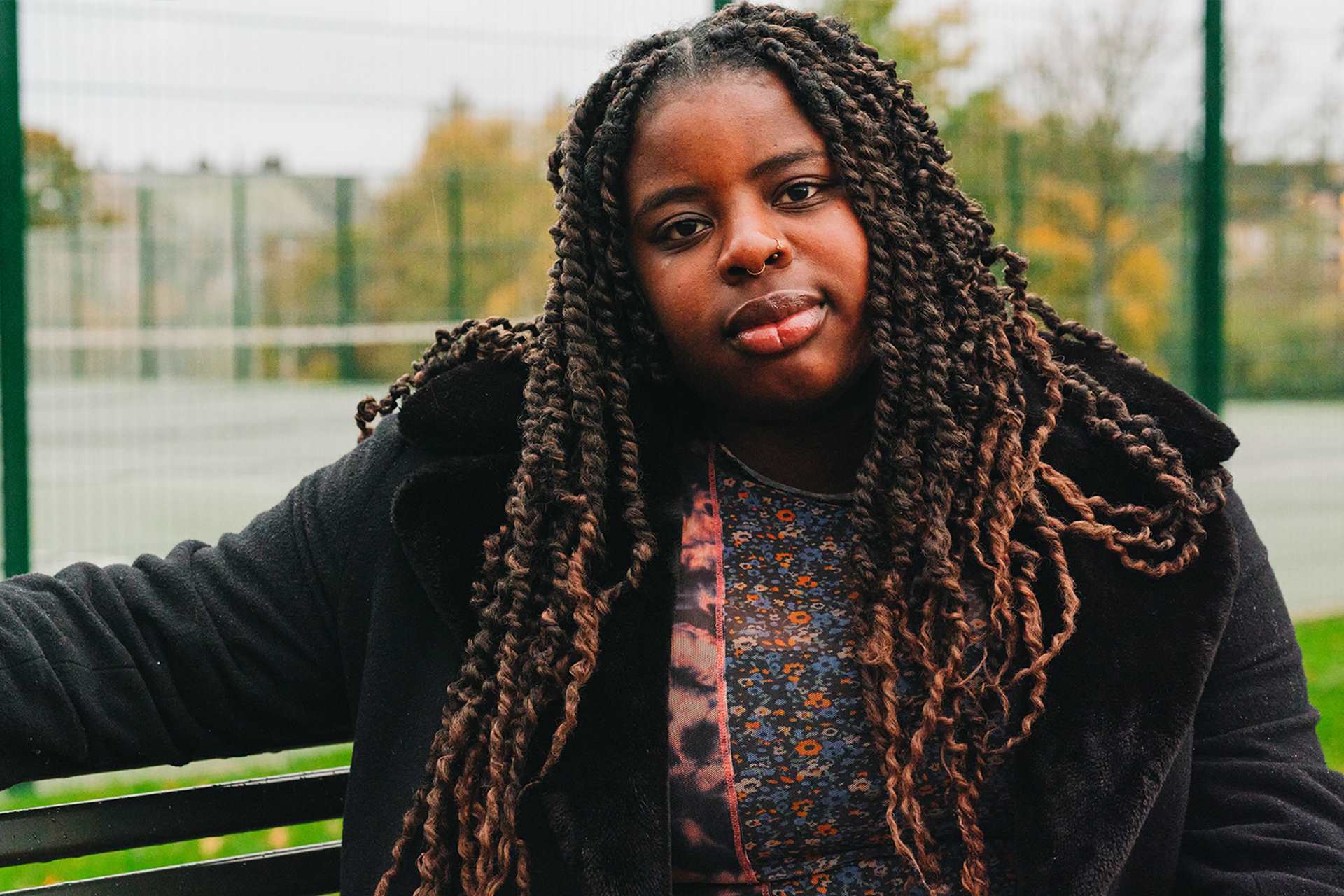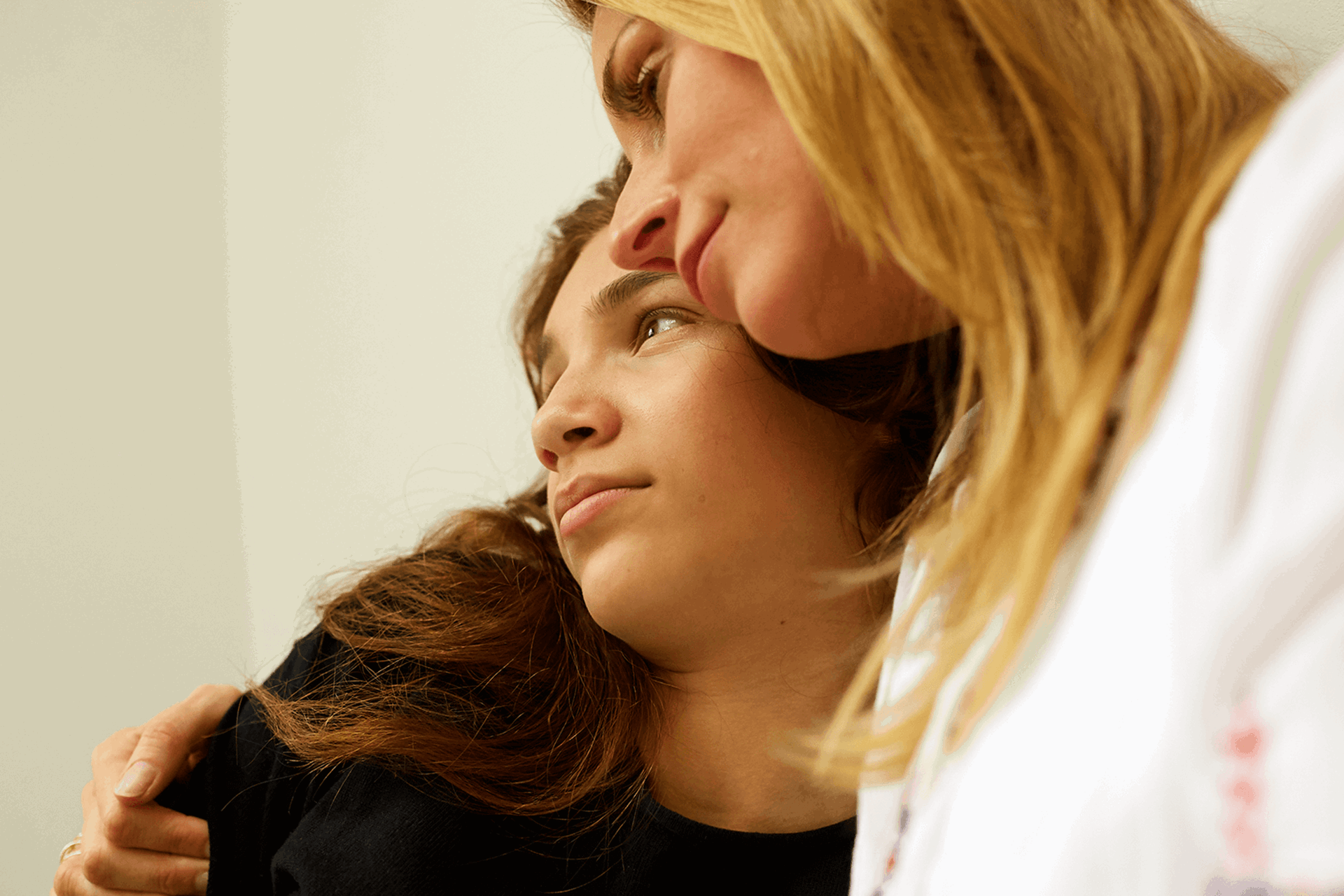Topics mentioned: eating disorders, autism
About: Saffron shares her daughter's journey towards getting a diagnosis of ARFID after years of misdiagnosis.
I know my child better than anyone. Even if I don't notice all the subtle signs at first, I can tell when she’s being honest and when she’s not okay, and I understand how she thinks and feels.
So what happens when the professionals you turn to for help dismiss your concerns, don't listen, and insist you’re wrong? When they don't involve you, and don’t put you and your child at the centre of things?
This is the journey I faced trying to get the correct diagnosis for my autistic daughter, who was misdiagnosed for years with anorexia before being diagnosed with Avoidant/Restrictive Food Intake Disorder (ARFID).
Misdiagnosis
From a young age, my daughter’s relationship with food was difficult. It wasn’t just picky eating - it was an extreme aversion to certain textures, smells, and tastes. She would gag or throw up due to the smell of certain foods, and the list of things she could eat was incredibly small. She would only eat in certain environments, with certain tableware, and when she felt calm. She frequently became anxious and upset about making decisions. She would beg me to help her eat, but no matter how hard she tried, often just couldn't seem to manage to.
Yet no matter how many times I voiced my concerns, I was brushed off - by friends, and when we sought help, professionals. When the GP referred us to CAMHS, the doctors told me she was a “fussy eater” and gave us reward charts. They told me I needed to be "less soft" and that she would learn she "couldn't get away with it". They suggested I push her harder to eat a wider variety of foods.
But nothing worked, and mealtimes became a source of constant anxiety. My daughter became lower in mood, withdrawn, and more frequently had meltdowns. It was a difficult time for the whole family, and her older sister struggled to cope with it all.
Over time, my daughter started losing weight. At that point, doctors began to take notice, but their focus shifted in the wrong direction. They diagnosed her with anorexia nervosa, suggesting that she was intentionally restricting her food intake due to psychological reasons or a desire to control her weight. I was immediately uneasy with this diagnosis. Her food avoidance was about the overwhelming sensory experiences caused by certain foods and the environment, internal body senses, executive function, and other difficulties. I argued and argued, but ultimately felt silenced.
No matter how many times I voiced my concerns, I was brushed off - by friends, and when we sought help, professionals.

Fighting for diagnosis
Although outpatient treatment did help to begin with, the lack of appropriate support for her autism meant she was never able to stay well. She spent all of her adolescent and young adult years in and out of hospital, becoming a 'revolving door' patient. She very quickly became institutionalised, enjoying the routine of the units and the friendships there. At the same time, I continued to try and fight with medical professionals for a correct diagnosis.
Although she had been diagnosed with autism, none of her treatment plans made appropriate accommodations, and revolved around getting her to comply with eating more - not addressing the root cause at all. I was labelled a troublemaker and told that I wasn’t enforcing the rules properly. I began to doubt myself. Was I in denial? Was I failing as a parent?
We eventually decided to do our own research, and came across ARFID, an eating disorder like anorexia, but not driven by body image concerns. Instead, people with ARFID avoid certain foods due to sensory sensitivities, anxiety, or other differences. Things began to make sense. My daughter's struggle to maintain her weight was due to her autism, which had been made worse by abuse she experienced at university. But when I brought this up to her doctors, I was dismissed. They insisted that my daughter’s behaviour fit the profile of anorexia, and said that "even if she does have ARFID, it won't make a difference to anything".
When I brought this up to her doctors, I was dismissed. They insisted that my daughter’s behaviour fit the profile of anorexia, and said that "even if she does have ARFID, it won't make a difference to anything".
Raising awareness
After years of advocating for my daughter, and as professionals became more aware of ARFID, we finally found someone who listened. They understood the link between autism, trauma, and sensory sensitivities, and recognised that my daughter’s struggle to gain weight wasn't related to body image.
She finally received the correct diagnosis, and the validation was overwhelming. After all those years of being told we were wrong, of being made to feel like I wasn’t doing enough for my daughter, we were moving forward.
The frustration of being ignored for so long stayed with me for a while, though. I had trusted the professionals, yet they dismissed me at every turn. I was left feeling isolated, and the damage of inappropriate treatment on my daughter is something we can't begin to estimate. It’s also hard to describe the emotional toll this experience had on our whole family.
Now, my daughter's treatment is focused on her sensory needs, her rigidity and need for routine, and the trauma she has been through. The approach is different, and we are still learning about what works or doesn't. Progress is slow, but we have much more hope.
If I’ve learned anything from this journey, it’s to trust my instincts as a parent. If something doesn’t feel right, it’s worth fighting for answers. ARFID is often misunderstood, especially in children with autism, and getting the right diagnosis can make all the difference.
To any parent who feels unheard or dismissed by professionals: keep pushing. You are your child’s best advocate, and your voice matters, even when others try to silence it.
If I’ve learned anything from this journey, it’s to trust my instincts as a parent. If something doesn’t feel right, it’s worth fighting for answers.
If you have any concerns about these issues, or your child's behaviour around food, please look at our advice for parents and carers.
Useful helplines and websites
-
Beat
Offers information and support for anybody affected by eating disorders.
One-to-one web chat available. They also run a range of online support groups, which are all fully moderated and anonymous.
Enter your postcode in the HelpFinder to see what eating disorder support is available in your area.
View their information on helpline accessibility and confidentiality.
- Opening times:
- 365 days a year - weekdays (9am - 8pm); weekends (4pm - 8pm)
-
YoungMinds Parents Helpline
We support parents and carers who are concerned about their child or young person's mental health. Our Parents Helpline provides detailed advice and information, emotional support and signposting.
You can speak to us over the phone or chat to us online.
You can speak to us over webchat between 9.30am and 4pm from Monday-Friday. When we’re closed, you can still leave us a message in the chat. We’ll reply to you by email in 3-5 working days.
- Opening times:
- 9.30am-4pm, Monday-Friday
Spread the word






